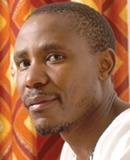We are living in the age of pluralism. More and more nations are defined by various differences, creating serious challenges around social cohesion, equity and notions of fairness. And yet we are also living in an information world – one that cuts across many dimensions of our lives.
The 9th Nelson Mandela Annual Lecture could not have come at a better time. Not only is an occasion to celebrate the values and ideals that Mandela has lived for, it is also a moment to reflect on the kind of societies we desire. Madiba (as he is popularly known) is an embodiment of the ideals of a socially just society.
It is therefore always an honour to attend the Annual Lectures. So it was with the same excitement that I attended the 9th Annual Lecture in Johannesburg this past weekend. The lecture has become a key event – one that captures the mood of society as well as general developments globally. To be sure, this event has become a global phenomenon. It started in 2003 with Bill Clinton, followed by Desmond Tutu in 2004. Since then, luminaries such as Wangari Maathai, Thabo Mbeki, Kofi Annan, Ellen Johnson Sirleaf, Muhammad Yunus and Ariel Dorfman have all come to grace the occasion by delivering lectures that touched on themes such as memory, justice, empowerment, governance and security among others.
It was however, this year’s lecture that spoke deeply to the work that I and many others are engaged in: social justice. Prof Ismail Serageldin of the Library of Alexandria touched on five areas during his lecture:
- social justice as a foundation of the state;
- the meaning of social justice;
- freedom, rights and equity;
- cohesion in the age of pluralism; and
- the centrality of participation.
It was such a coincidence that the Nelson Mandela Foundation invited such a notable speaker – who clearly has spent most of his life reflecting on the question of social justice – but also that it happened at a time when the ‘Arab Spring’ has redefined the political landscape globally. Today, the youth defy authoritarianism, dictatorships and corrupt leaders (particularly through cyberspace). They do this in search of a new society – one that is built on equity, fairness and inclusion. The revolution, led by the youth, has crossed cultural, political, ideological and even geographical boundaries. There is hope today for activists and proponents of social justice. And as Prof Serageldin noted during the lecture, ‘freedom, human rights and democracy are ideas whose time has come’.
If indeed ‘no army can stop the idea whose time has come’, then it is perhaps this moment that we have been waiting for to finally achieve the ideals of a socially just society. If our states are built around dimensions of social justice; our citizens truly understand the meaning of social justice; human rights, freedom and equity are norms and standards we work towards – then living in pluralistic societies as we do today would not be polarising but rather inclusive. In one of the books on the public sphere that I put together, the centrality of participation and cohesion in the age of democracy and pluralism was overly emphasised.
Building a new society on the ideals of social justice is a mammoth task – one that has been at the centre of philanthropy globally but is increasingly pertinent in Africa. We should be asking questions pointedly of this issue. How to build a new society on the foundations of social justice? What should be the role for global philanthropy in achieving this ideal? It seems to me that at this time – the age where all nations are becoming pluralistic – attention needs to be paid to the following areas:
- inclusive participation, democracy, human rights and equitable development;
- the erosion of cosmopolitanism and the entrance of pluralism; and
- the role of the youth in fashioning a new society and how societies interact.
In the short to medium term, these are the areas that I think those working in social change ought to focus on. This means that those working on social change philanthropy or something similar will have to adjust their priorities, including their worldviews. This will allow them to approach social justice not as the end product but rather as the foundation of a society we all long for.
Bhenkikosi Moyo is program director at Trust Africa






Comments (0)